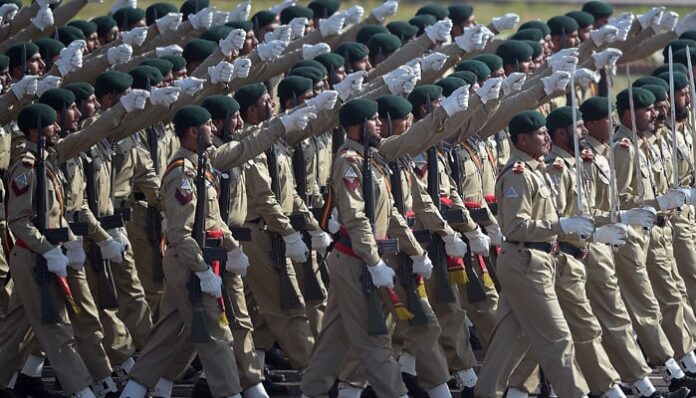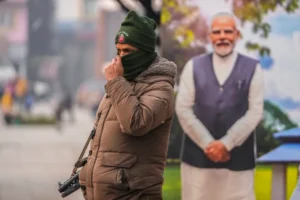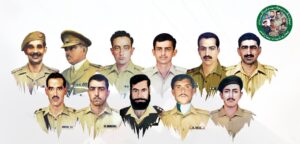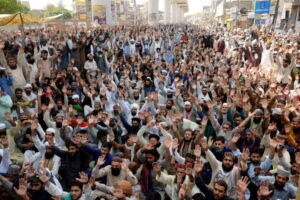The Pakistan Army, long seen as the country’s defence bastion, has rapidly increased its influence into a variety of areas including the domain of economy and finance. Beyond the battlefield, the military runs a number of organizations which contribute towards promoting economic growth and social welfare thus exhibiting a rare combination of military effectiveness and corporate expertise.
Economic Power Houses
The Fauji Foundation is a testimony to the Army’s business spirit. It operates key organizations such as Fauji Fertilizer Company and Fauji Cement Company, which are operating in a variety of sectors including fertilizers, food processing and energy. The cash so earned goes towards the welfare initiatives for the families of martyrs, retired military personnel and their families resulting in a virtuous cycle of investment and reinvestment in the country’s human capital. In 2022 and 2023, the Fauji Foundation provided a remarkable 223 billion rupees to the state economy through taxes.
The Army Welfare Trust (AWT) is another pillar of the military’s financial operations, regulating businesses such as Askari Bank, Askari Cement, and Askari Aviation. Profits from Askari businesses also go towards welfare programs, exhibiting a paradigm in which commercial success results in practical advantages for the larger community. Askari Bank, for example, provides wide banking services that contribute significantly to financial inclusion and economic growth. In the fiscal years 2022 and 2023, AWT paid 3 billion rupees in taxes and levies.
The DHA development projects are synonymous with high-end urban development in places such as Karachi, Lahore, and Islamabad. These residential and commercial complexes not only provide high-quality living conditions, but they also boost local economies by luring businesses and raising property prices. The DHA’s rigorous planning and execution exemplify the military’s discipline and strategic vision for urban development. The DHA contributed 23 billion rupees to the state GDP in 2022 and 2023.
The National Logistics Corporation (NLC) is another important stakeholder in Pakistan’s logistics and infrastructure industries. NLC, established in 1978, conducts logistical operations by road, rail, sea, and air. NLC enables cargo transit, runs dry ports, develops infrastructures and is involved in large building projects. The NLC’s operations enable the seamless movement of products, which aids commerce and economic activity. Furthermore, its dedication to technology integration and corporate social responsibility programs emphasizes its role in promoting sustainable development and community well-being. It has developed a system to transport freight beyond borders of Pakistan. Recently, it sent shipments to Russia, Kazakhstan, providing its efficacy. In 2022 and 2023, the NLC contributed 3.5 billion rupees in taxes and charges.
Army Public Schools and Colleges System (APSACS) is a network of educational institutions recognized for their academic rigour and discipline. These schools, located around the country, serve both military and civilian children, offering superior education and cultivating well-rounded human resources. APSACS’ emphasis on character development and extracurricular activities equips students to thrive in a variety of disciplines, while making a constructive contribution to society.
Military and Cadet Colleges such asMilitary College Jhelum, Military College Murree, and other similar schools offer a combination of academic and military training, preparing future leaders for both the military and civilian sectors. These institutions are well-known for their disciplined environment and excellent educational standards, with alumni who make major contributions to national progress. The alumni from military cadet colleges proves their mettle in different walks of life.
National University of Sciences and Technology (NUST) with significant military associations, provides engineering, IT, and management education. It generates highly skilled human resource that propel innovation and economic prosperity. NUST’s emphasis on research and development remain consistent with the country’s goals for technical advancement and economic diversification.
The Pakistan Army’s healthcare institutes, such as the Combined Military Hospitals (CMH), offer excellent medical treatment to both military personnel and civilians. These hospitals are critical components of the national healthcare system, providing specialized treatments and modern medical services. The Army Medical College strengthens this sector by teaching qualified medical personnel.
The Army’s commercial operations employ thousands, lowering unemployment and supporting economic growth. These enterprises also make large contributions to the national exchequer through taxes and tariffs, demonstrating their economic importance. These firms’ welfare projects help to fund a variety of social activities. Many Pakistanis benefit from such initiatives that which range from the construction of schools and vocational centers to the provision of healthcare in distant locations. DHA’s urban development projects are examples of efficiency and design, boosting living standards, while also promoting economic growth through increasing property values and commercial prospects.
These initiatives demonstrate the military’s strategic approach to urbanization and infrastructure development. Army-run educational institutions contribute significantly to human capital development. By providing high-quality education and vocational training, these institutions equip students to make valuable contributions to the economy and society. This investment in education provides a consistent supply of competent individuals to suit the needs of diverse businesses.
The Pakistan Army’s institutions serve a crucial role in the country’s economic and social progress. Despite such enormous contributions, some dissident political quarters choose to criticize Pakistan Army unnecessarily, they blame unsubstantially that Army is exploiting Government’s resources, which is incorrect. As a matter of fact, such false assertions frequently ignore the Army’s considerable social and economic initiatives. The Army’s commercial operations generate money that is reinvested back into the economy, providing millions of people with employment and crucial services. Army’s institutions not only provide for the livelihoods of military members, but also assist civilians, particularly in distant and underdeveloped regions. From commercial firms that generate economic activity to educational and hospital institutions that provide key services, the Army’s diverse contributions remain critical to Pakistan’s prosperity. These institutions demonstrate how military effectiveness may lead to larger national advantages including growth, stability, and wealth.
Sara Nazir is an Islamabad-based researcher with a background in Strategic Studies & area of interest is non-traditional warfare. She can be reached on saranazeer2@gmail.com & @SaraNazir13 (on X).




